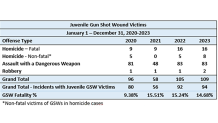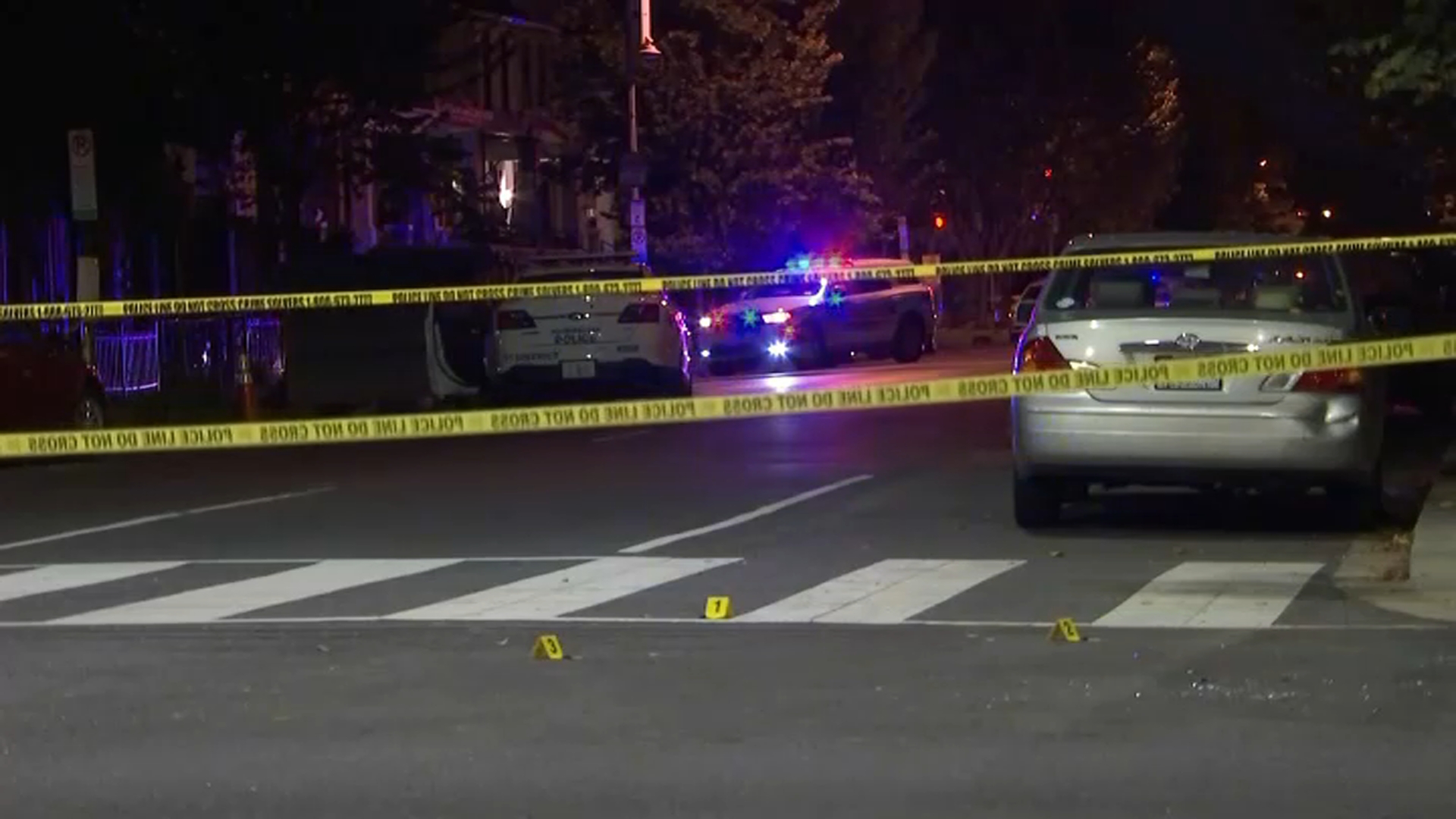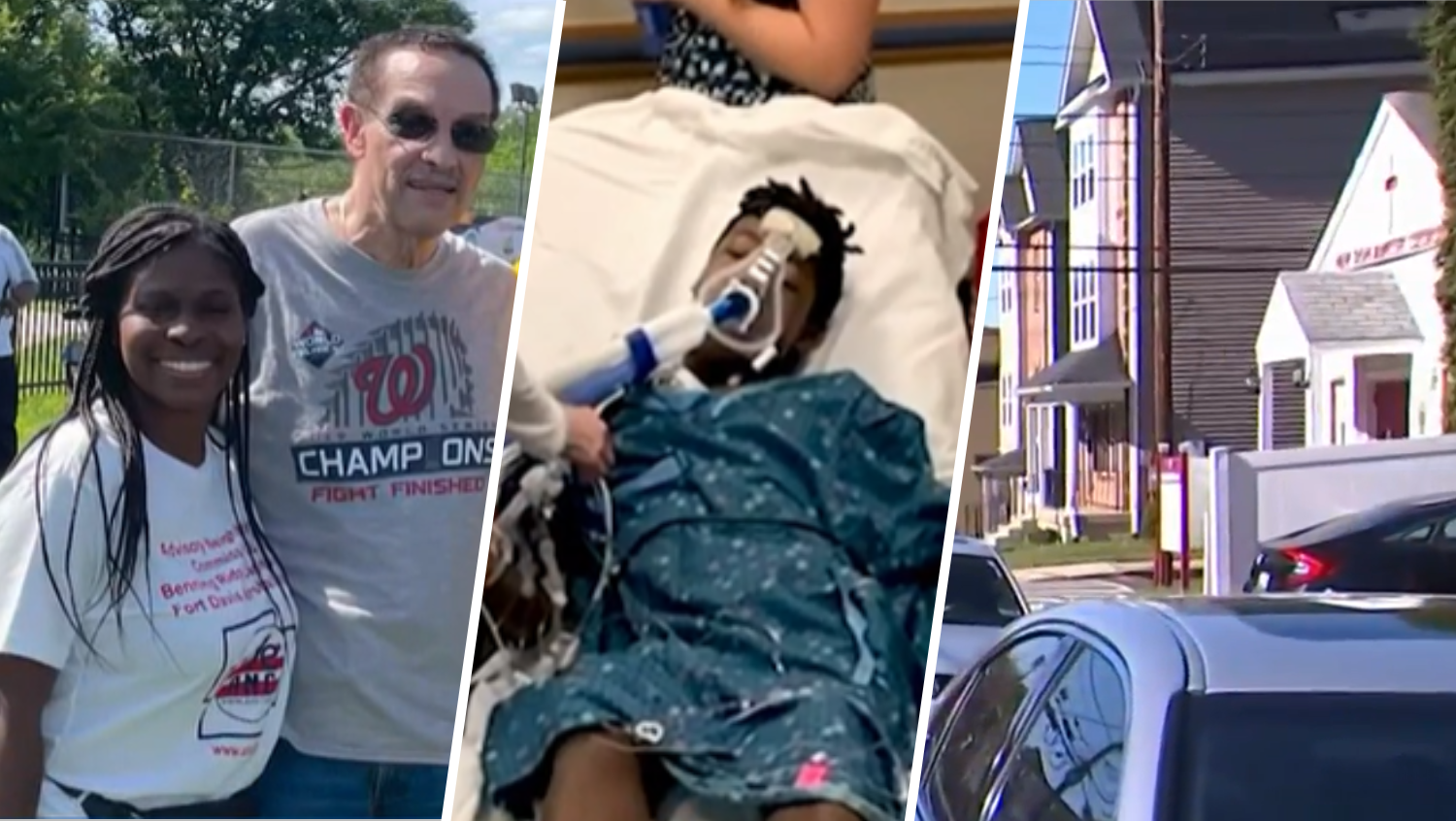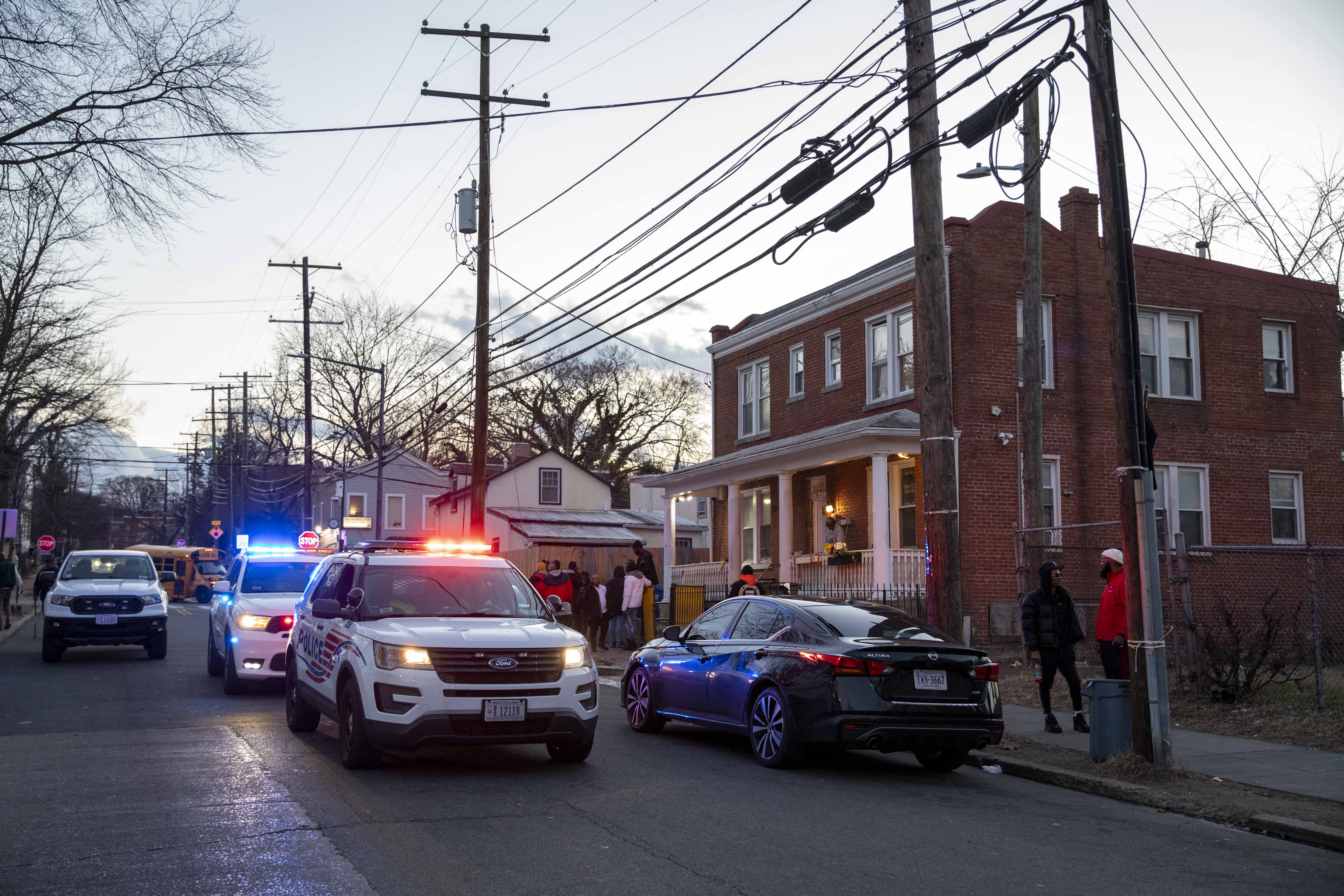As the first month of 2024 wraps up, there are some signs of improvement in the District with homicides and violent crime down so far. But there’s still work to be done especially when it comes to young people.
Last year was a tough year with 109 juveniles shot in D.C. This year, five have already been shot. But that number is down nearly half from the same time last year.
D.C. Assistant Police Chief Andre Wright knows this city better than most. Growing up in D.C., he’s seen the unique opportunities it can offer its young people. But he’s also seen what it can take, having patrolled and commanded in some of the toughest neighborhoods. He now leads the Metropolitan Police Department’s Youth and Family Engagement Bureau and says seeing kids gunned down on the streets of his hometown has taken a toll on him.
“Every time I see it, every time I experience, I'm on the scene quite a few times of these things. It's not anything that you ever get used to or want to get used to," said Wright. “I'm not used to it. I'm still not. Twenty-nine years of law enforcement, it still grates me and it still shakes me when I come on a scene and I see what was to be our future."

While the number of juveniles shot in the District have steadily climbed since 2021, Wright is confident the trend can be turned around.
“Do I think that we could turn this around? I absolutely think we can do it. I think we will,” he said. "I think that this goes back to, A, having hope. B, making sure that everybody, everybody … has to play a responsibility in this. It cannot just be the conversation of what is the police doing."
Wright is not passing the buck on officers’ roles in curbing youth violence. D.C. has plenty of programs aimed at cutting it, and the city’s struggles to arrest and prosecute young people involved in crime are well documented.
But he told the I-Team arrests can't be the only police interaction that redirects a kid, which makes places like the Boys & Girls Clubs of America so important.
“I wouldn't be here if it wasn't for my interaction with the Boys & Girls Clubs,” said Wright.
Kids who grow up around the Boys & Girls Clubs of Greater Washington in Northeast, like Wright did, are no strangers to violent crime. He assigns some of his officers to be there after school hoping to grow those relationships with police early.
“Our officers are here in the evenings, when they get here, when they get out of school," Wright said.
But Wright knows many of the department’s officers are already stretched too thin, the pace of the job just keeps them too busy.
“They're exhausted from working eight-, 10-, 12-, 16-hour days, running to and from and don't really have the opportunity that I once had and others once had when we were strong in our numbers," he said.
And yet even that hasn’t destroyed his belief that it's going to be better.
“I hope and pray for these young folks that they get a chance to do what I did, which is outlive their mistakes," Wright said.
When the I-Team asked him what keeps him up, what scares him, he paused for a few seconds.
“People who don't have hope scare me. People who don't believe that a better day is coming. People who have sentenced our youth in this city to a death sentence saying that they're a lost generation. People who talk like that. People who believe and move in that in that manner. They scare me. They scare me," he said. "Because you have to have hope. You have to have faith. You have to believe, first and foremost, that that better day is coming."
Reported by Ted Oberg, produced by Rick Yarborough, and shot and edited by Steve Jones.
News4 sends breaking news stories by email. Go here to sign up to get breaking news alerts in your inbox.




